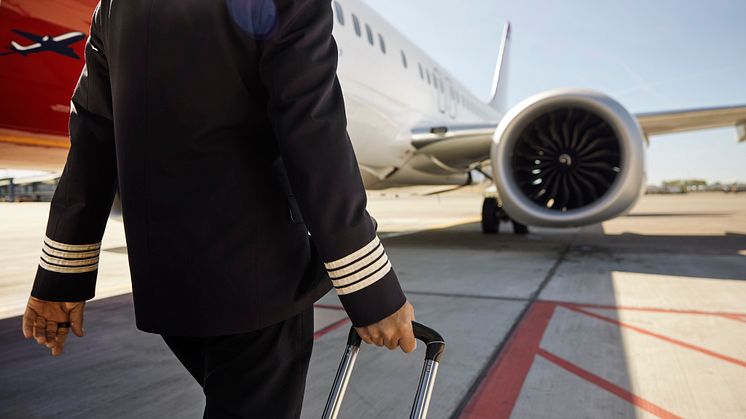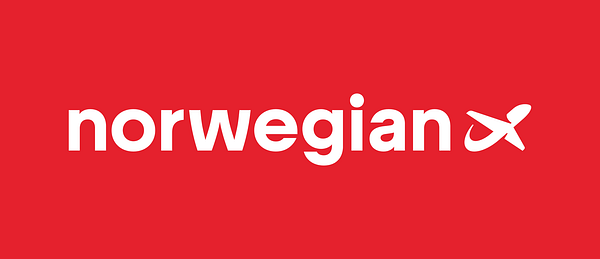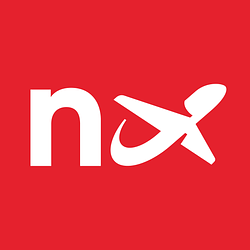
Press release -
Norwegian Group with improved first quarter results
The first quarter was characterised by a continued significant growth in passengers for both Norwegian and Widerøe. The results were positively impacted by efficiency gains and initiatives implemented during the quarter, including the purchase of ten previously leased Boeing 737-800 aircraft.
Norwegian recorded an operating loss (EBIT) of NOK 611 million for the group in the first quarter of 2025, an improvement of NOK 152 million from last year. Operating profit was also impacted by the strengthening of NOK against USD during the quarter. Norwegian’s liquidity position was NOK 10.5 billion at quarter-end, following the aircraft acquisition which was initially financed with the group’s available cash. The Norwegian Group fleet, including Widerøe, comprised a total of 140 aircraft. 89 aircraft in Norwegian and 51 aircraft in Widerøe.
“We continue on a positive trajectory in the year’s first quarter, and it is encouraging to see that our initiatives are yielding results on the cost side. The acquisition of ten previously leased aircraft impacts our results this quarter positively and provides recurring savings and more flexibility going forward. Widerøe is on a positive heading and delivered daily passenger records twice in April,” said Geir Karlsen, CEO of Norwegian.
In the first quarter of 2025, Norwegian Group had 5.1 million passengers, of which 4.2 million were passengers of Norwegian and 0.9 million of Widerøe. For Norwegian, the capacity (ASK) was up 16 percent, while the Widerøe capacity increased by 4 percent. The quarterly load factor for Norwegian was 82.5 percent, down 2.3 percentage points from the same period last year, mainly due to the timing of Easter as well as a significant capacity increase. Punctuality, the share of flights departing within 15 minutes of schedule, was 81.9 percent for Norwegian and 79.3 percent for Widerøe.
Looking ahead to the busy summer season
Norwegian’s summer programme took flight from 30 March. This initiates a significant ramp-up with a total of 350 routes to 129 destinations to Europe and beyond. The important Easter week came later this year, which corresponds better with Norwegian’s capacity ramp-up for the summer.
“The summer programme is well on its way. We have ramped up the production and onboarded all the colleagues needed for the busy peak season. In other words, we are ready for a great summer, and we can already see that our customers are ready to travel as well. The booking trend looks good across both Norwegian and Widerøe, with June selling well ahead of last year,” said Geir Karlsen.
The Norwegian fleet is forecasted at 88 aircraft through the peak summer season, while the overall production for 2025 is forecasted to grow by approximately 3 percent compared to the previous year.
Topics
Categories
About Norwegian
The Norwegian group is a leading Nordic aviation company, headquartered at Fornebu outside Oslo, Norway. The company has over 8,200 employees and owns two of the prominent airlines in the Nordics: Norwegian Air Shuttle and Widerøe’s Flyveselskap. Widerøe was acquired by Norwegian in 2024, aiming to facilitate seamless air travel across the two airline’s networks.
Norwegian Air Shuttle, the largest Norwegian airline with around 4,700 employees, operates an extensive route network connecting Nordic countries to key European destinations. In 2024, Norwegian carried 22,6 million passengers and maintained a fleet of 86 Boeing 737-800 and 737 MAX 8 aircraft.
Widerøe’s Flyveselskap, Norway’s oldest airline, is Scandinavia’s largest regional carrier. The airline has more than 3,500 employees. Mainly operating the short-runway airports in rural Norway, Widerøe operates several state contract routes (PSO routes) in addition to its own commercial network. In 2024, the airline had 3.8 million passengers and a fleet of 49 aircraft, including 46 Bombardier Dash 8’s and three Embraer E190-E2's. Widerøe Ground Handling provides ground handling services at 41 Norwegian airports.
The Norwegian group has sustainability as a key priority and has committed to significantly reducing carbon emissions from its operations. Among numerous initiatives, the most noteworthy is the investment in production and use of fossil-free aviation fuel (SAF). Norwegian strives to become the sustainable choice for its passengers, actively contributing to the transformation of the aviation industry.


